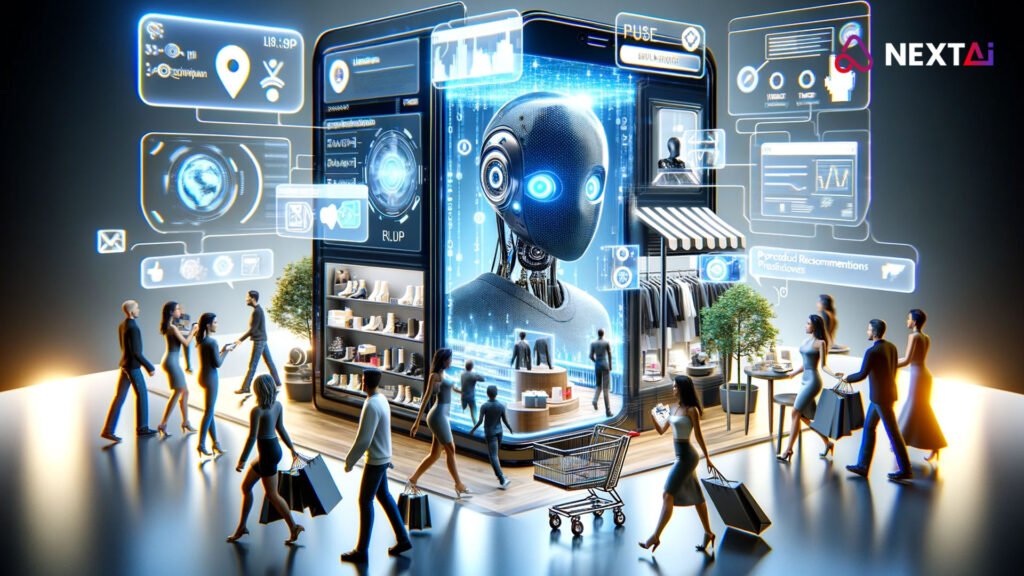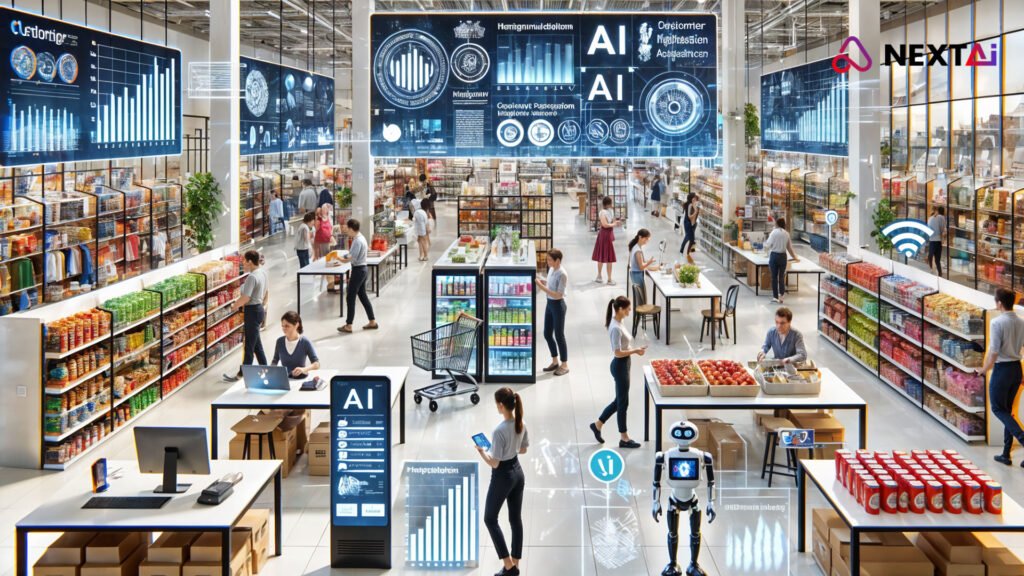By Rajiv Rajkumar Bathija – Visionary with 35 Years of Experience | AI in Retail and E-commerce
Artificial Intelligence (AI) is transforming the retail and e-commerce sectors, offering a personalized, efficient, and seamless shopping experience for consumers. From smart product recommendations to automated customer service and inventory optimization, AI is changing how retailers engage with customers and manage their operations. In this blog, we explore how AI is revolutionizing retail and e-commerce, and the key technologies that are driving this transformation.

Personalized Shopping Experiences
AI-powered personalization is at the heart of modern retail and e-commerce. By analyzing user data such as browsing behavior, purchase history, and preferences, AI algorithms can provide personalized recommendations that are highly relevant to each customer.
– Product Recommendations: Machine learning algorithms analyze customer data to understand their preferences and predict what products they might be interested in. Platforms like Amazon and Netflix use AI to provide personalized suggestions, increasing customer satisfaction and boosting sales.
– Dynamic Pricing: AI enables dynamic pricing strategies that adjust prices based on factors such as demand, competitor pricing, and customer behavior. This allows retailers to maximize their profits while offering competitive pricing to consumers.
– Customer Segmentation: AI helps in segmenting customers into different groups based on their behaviors and preferences. Retailers can use this information to create targeted marketing campaigns, offering the right product to the right customer at the right time.
Automated Customer Service
AI is also transforming the way retailers interact with customers through automated customer service solutions that provide instant support.
– Chatbots and Virtual Assistants: AI-powered chatbots are used to assist customers in real-time, providing answers to frequently asked questions, processing orders, and even recommending products. These chatbots are available 24/7, ensuring that customers receive assistance whenever they need it.
– Natural Language Processing (NLP): NLP allows AI to understand and respond to customer queries in a natural and conversational manner. This technology improves the quality of customer interactions, making it feel like they are speaking to a human agent.
– Sentiment Analysis: AI-driven sentiment analysis tools can gauge customer emotions and identify when a customer is dissatisfied. This helps retailers address issues proactively, enhancing the overall customer experience.
Inventory Optimization
Efficient inventory management is crucial for retail and e-commerce businesses, and AI is playing a vital role in optimizing these processes.
– Demand Forecasting: AI algorithms analyze historical sales data, market trends, and external factors such as holidays and weather to predict future demand. Accurate demand forecasting helps retailers maintain optimal inventory levels, reducing both overstocking and stockouts.
– Automated Replenishment: AI-driven inventory management systems can automatically trigger orders for replenishment when stock levels are low. This ensures that popular items are always available, leading to better customer satisfaction and reduced lost sales.
– Supply Chain Optimization: AI can also optimize the entire supply chain by predicting potential disruptions, identifying the most efficient routes, and ensuring timely deliveries. This leads to cost savings and a more reliable supply chain.
Enhancing Customer Insights
AI provides retailers with deep insights into customer behavior, preferences, and trends, helping them make data-driven decisions.
– Customer Journey Mapping: AI can track and analyze the entire customer journey, from browsing to purchase, identifying key touchpoints and areas where customers drop off. This information is used to optimize the shopping experience and reduce cart abandonment rates.
– Hyper-Personalized Marketing: AI helps retailers deliver hyper-personalized marketing messages that resonate with individual customers. By analyzing customer data, AI can determine the best time and channel to reach customers, increasing the effectiveness of marketing campaigns.
– Visual Search: AI-powered visual search allows customers to upload images of products they like, and the system suggests similar items available in the store. This makes the shopping experience more intuitive and enjoyable.
Challenges and Ethical Considerations
While AI is transforming retail and e-commerce, it also presents certain challenges that must be addressed to ensure its responsible use.
1. Data Privacy
AI relies on large amounts of customer data to deliver personalized experiences. Retailers must ensure that this data is collected, stored, and used in compliance with privacy regulations such as GDPR. Transparency in data usage and obtaining customer consent are crucial for building trust.
2. Algorithmic Bias
AI models can be subject to bias if the training data is not representative of the entire customer base. This can lead to biased recommendations and pricing, which may unfairly impact certain groups of customers. Ensuring that AI models are trained on diverse datasets is essential to minimize bias.
3. Impact on Employment
The automation of customer service and inventory management processes through AI may lead to job displacement in the retail sector. It is important for companies to consider the social implications of AI adoption and invest in upskilling employees for new roles that emerge as a result of technological advancements.
The Future of AI in Retail and E-commerce
The future of AI in retail and e-commerce is promising, with continued advancements expected to make the shopping experience even more personalized and efficient. AI will continue to play a key role in driving innovation, from enabling voice-activated shopping assistants to creating fully immersive AR-powered shopping experiences.
As AI evolves, it will become even better at understanding customer needs and delivering experiences that feel personalized and human. Retailers that embrace AI technologies and address the ethical challenges will be well-positioned to thrive in the rapidly changing retail landscape.

Conclusion
AI is transforming the retail and e-commerce sectors by providing personalized recommendations, automating customer service, and optimizing inventory management. These technologies are not only enhancing the customer experience but also helping retailers streamline their operations and improve profitability. However, it is crucial for retailers to address challenges related to data privacy, bias, and job displacement to ensure that AI is used responsibly and benefits all stakeholders.
By leveraging AI responsibly, we can create a shopping experience that is efficient, personalized, and delightful for every customer.
 By Rajiv Rajkumar Bathija
By Rajiv Rajkumar Bathija




